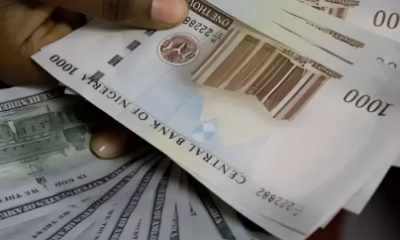Chairman of the Senate on Capital Market and Institutions, Senator Osita Izunnaso, says the new recapitalization initiative for banks by the Central Bank of Nigeria (CBN) is critical given the depreciation of the naira which has significantly affected the capital base of banks in recent years.
Recall that the CBN last week unveiled new minimum capital requirements for banks, pegging the minimum capital base for commercial banks with international authorisation at N500bn.
The new minimum capital base for commercial banks with national authorisation was pegged at N200bn, while the new requirement for those with regional authorization pegged at N50bn.
“The new minimum capital requirements for banks operating in Nigeria, with the objective of ensuring a more safe, sound and stable banking system is a welcome development that will help strengthen the country’s financial system in general.
“This new Capital requirement is justified by the negative impact of naira depreciation on the capital base of banks over the years especially following the recent unification of exchange rates.
“The adoption of tiered minimum capital requirements in respect of international, national and regional authorization is commendable unlike the uniform capital base of N25 billion which applied in the 2005 banking recapitalisation exercise.
READ ALSO: Daily FX turnover soars to record high as Naira gains momentum
“In view of the strong link between the money and capital markets in Nigeria with most banks quoted on the Nigerian Exchange, I have no doubt that the successful implementation of this exercise will have salutary impact on the capital market.”
Senator Izunaso noted that the expectation is that banks, many of which are listed on the Nigerian Exchange, will utilize the stock market to raise the necessary funds through offers for subscription or rights issues.
Izunaso stressed the importance of injecting fresh capital to meet these requirements, rather than relying solely on revenue reserves. This strategy is poised to deepen the capital market, escalate equities market capitalization, and possibly act as a beacon for Foreign Direct Investment (FDI), with beneficial effects on the economy at large.
READ ALSO: Naira up by 6%, closes N1, 300/$ at official market
“Against the backdrop of the requirement to use only paid-up share capital and share premium for recapitalisation purposes, it is expected that most of the banks will approach the Stock market to raise additional funds either through an offer for subscription or rights issue.
“This has the potential to deepen the market, increase equities market capitalization as well as serve as a veritable source of Foreign Direct Investment with positive multiplier effects on the economy.”
However, Izunaso also highlighted potential risks, particularly the danger of banks using laundered money for recapitalisation through private placements. He urged the CBN to enhance its oversight to ensure that only fit and proper individuals become significant shareholders, noting that transactions through the stock market inherently provide an extra layer of scrutiny.

 Health7 days ago
Health7 days ago
 Crime1 week ago
Crime1 week ago
 Latest1 week ago
Latest1 week ago
 Latest6 days ago
Latest6 days ago
 Health6 days ago
Health6 days ago
 Business1 week ago
Business1 week ago
 Football1 week ago
Football1 week ago
 Football1 week ago
Football1 week ago













